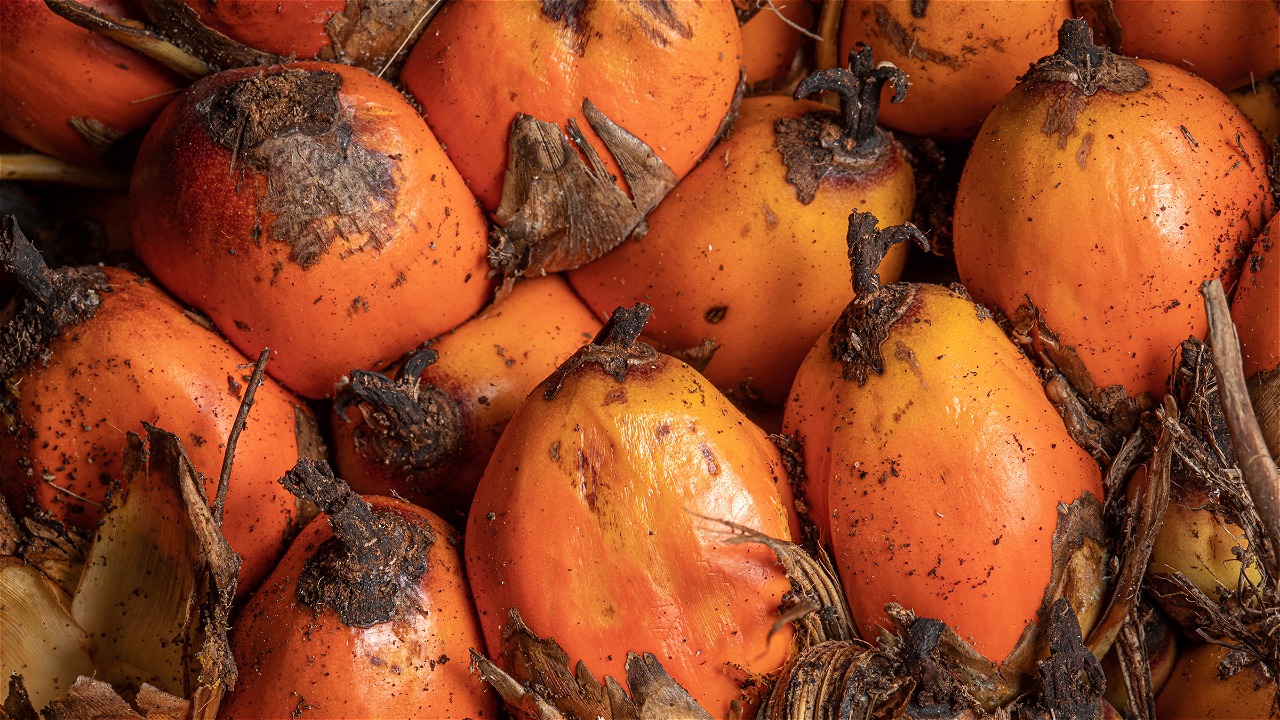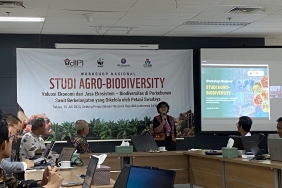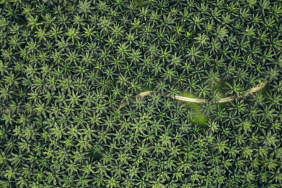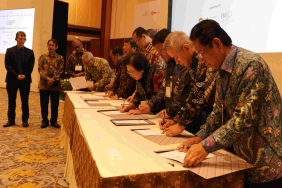ENCOURAGING SUSTAINABLE INDEPENDENT PALM OIL MANAGEMENT
SINTANG - Sintang Regency is a regency located in the eastern region of West Kalimantan Province with the main economic turnover driven by the agricultural sector. The local government in determining development policies has placed agriculture in the most strategic order because agriculture is considered capable of sustaining the economy of the people in Sintang Regency. This is supported by the potential of natural resources for agricultural development which encourages the growth of other agribusiness activities.
Oil palm is one of the fastest growing plantation sectors in Sintang Regency, this commodity in a short time can overtake the dominance of the rubber plantation sector. This can be seen from the results of a survey by the Regional Facilitator (Fasda) Sawit Lestari conducted in 7 sub-districts in Sintang District at the end of 2014, recorded a total area of 2,195.44 hectares owned by 449 independent oil palm farmers. However, it is realized that the community's efforts to develop independent oil palm plantations have not been matched by good cultivation knowledge from farmers or readiness for assistance from the government.
"This lack of knowledge and assistance results in the lack of productivity of the plantation. On the other hand, business certainty in the context of marketing will also be an obstacle later. Marketing of Fresh Fruit Bunches (FFB) to Palm Oil Mills (PKS) is done by riding with plasma FFB. With such young Producing Plants (TM), the yield is small and the price is also reduced. This results in there being parties who are disadvantaged, in this case both the PKS and the farmers whose FFBs are hitchhiked, "said the Chairperson of Fasda Sawit Lestari, Subarjo.
"The development of unsustainable oil palm plantations will have a negative impact on the environment. Therefore, government intervention in the initial development process and the cultivation process is very important, to ensure that independent oil palm plantations are built in areas that are in accordance with the district spatial planning and ensure that the productivity of the plantation is high and of course remains environmentally sound, "said the Head of the Sintang District Agricultural Extension Agency for Forestry Fisheries and Food Security (BP4KKP), delivered by the Head of the Human Resources and Institutions Division, Joko Sri Sadono, when opening the Training of Trainers for Good Oil Palm Plantation Management, Tuesday (10/5).
Veronika added that Field Extension Officers (PPLs) are strategic officers in assisting independent oil palm farmers given their presence and high intensity of meetings with farmers, so through this training of trainers, participants are expected to be able to assist farmers in developing their plantations.
WWF-Indonesia's West Kalimantan Program Manager, Albertus Tjiu said that there was also a need for efforts to assist and increase the capacity of independent oil palm smallholders by key stakeholders - including the government - such as extension workers, administrators of oil palm farmer organizations, non-governmental organizations, and others from Sintang District.
"The assistance carried out aims to bridge the interests of farmers, especially independent farmers, with related institutions, as well as an effort to optimize the role of the government in regulating governance related to independent oil palm plantations," Albertus said.
The three-day training was organized by WWF-Indonesia in collaboration with Fasda Sawit Lestari of Sintang District. The training was attended by 14 PPLs representing 14 sub-districts in Sintang District and 1 PPL member of Fasda Sawit Lestari.
"After the training, it is hoped that the trained participants in the future can transform the knowledge gained to other farmers and then independent oil palm farmers can manage their plantations in accordance with the principles of Good Agricultural Practices through assistance from PPLs," said Field Officer Sintang-Melawi, WWF-Indonesia West Kalimantan Program, M. Munawir.
The existence of independent oil palm farmers has given an overview to plasma farmers and other community members to participate in developing oil palm plantations independently and sustainably as one of the potential people's economic businesses that lead to production and marketing capabilities in Sintang Regency.





